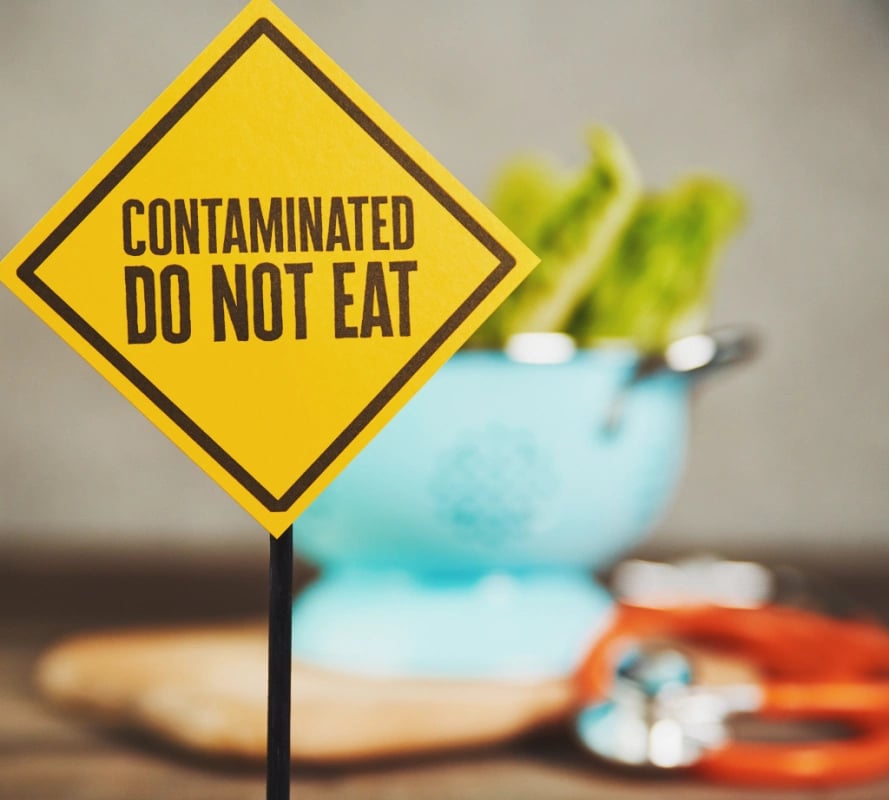A recent study conducted by researchers at Dalhousie University in Halifax, Nova Scotia revealed
shocking revelations about Canadians and their relationship with food recalls. The study, lead by Dean of Management Sylvain Charlebois, revealed that Canadians regularly underestimate the severity of food contamination and food recalls, instead putting their trust into a system which many experts believe is not properly communicating the hazards of recalled food with the public.
Study conducted at Dalhousie University
The Dalhousie University study revealed that many Canadians had been unaware of many of the major food recalls that had taken place in the previous years. More than 1,000 Canadians were surveyed about recalls issued by the Canadian Food Inspection Agency - including the 2017 flour recall caused by an E. coli outbreak and the 2016 listeria-related frozen foods recall - with only 37% and 40% of those surveyed respectively responding that they had been aware of these major recalls.
The study also revealed that most Canadians don’t understand the size and scope of food recalls that are issued each year - more than 82% of respondents answered that there were less than 100 recalls in 2017, with 61% saying that there were less than 50, when in reality the official number is 155 total food recalls. This troubling find is an indication that the organizations and systems responsible for issuing food recalls and many Canadian citizens have a major disconnect when it comes to food safety, creating a lack of awareness in the public and increasing the potential for foodborne illness.
Canadians showing awareness but many are still getting sick
In addition to some of its more disappointing responses, the Dalhousie University study also held some positive statistics, with nearly 80% of Canadians surveyed reporting that they had heard about at least one major food recall in the last two year period. Despite this general knowledge of major food recalls in Canada, a number of citizens continue to get sick due to recalled food products. Aline Dimitri, the deputy chief food safety officer at the Canadian Food Inspection Agency, stressed that while it’s important that the recalls resonated with Canadians even after a two year period, the goal of the CFIA is to ensure that food recall-related illnesses are eliminated and that the safety of citizens remains their primary objective.
Food recall measures being taken to increase awareness
The release of the Canadian food recall study has led many in the industry to question what is currently being done to increase awareness in Canadians, and what could be done more effectively to ensure that recall-related foodborne illness may be eliminated in the future. The CFIA is currently active on social media, alerting its 50,000 Twitter followers about food recalls - but the channel is also being used for other food-related content, so important alerts can be easily lost in the feed. An e-alert system also exists to immediately alert Canadians about major recalls, but only about 65,000 subscribers currently exist on the platform.
A government-funded smartphone app also exists to alert the public about general product recalls, but it does not appear to be widely used.
Finding an engaging method to effectively communicate the dangers of food recalls with the public is a crucial step in eliminating the spread of foodborne illness, but it remains an uphill battle by those in the industry. Less than 18% of those surveyed believe that consumers should be responsible for food safety, which suggests that the majority of Canadians expect governing bodies to act proactively in recalling foods and informing the public about their dangers. Both consumers and the agencies responsible for recalls need to continue evolving and taking charge - without cooperation, awareness, and enthusiasm from the general public, the dangers of food recalls will continue to be ever-present, and Canadians will continue to get sick.



